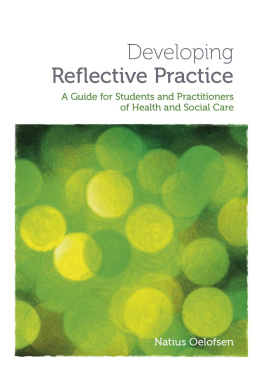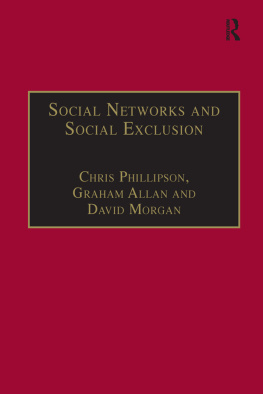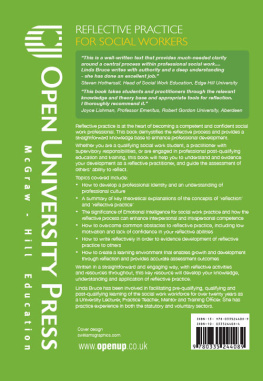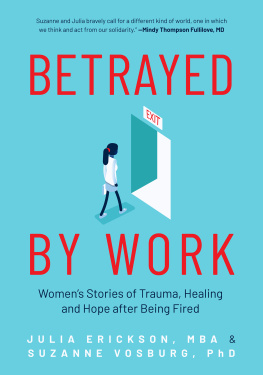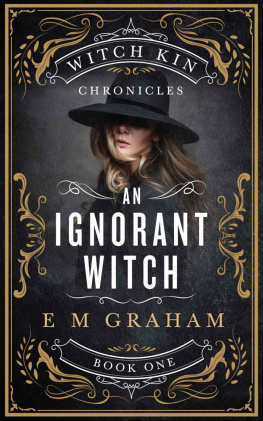
Reflective Thinking in Social Work
It is vital that social work students learn to integrate their personal and professional selves if they are to meet the challenges of social work in complex changing environments. This accessible text is designed to enable readers to explore and build on their existing skills and abilities, supporting them to become competent and self-aware reflective practitioners.
Reflective Thinking in Social Work uses stories told by a range of social work students to model reflective practice learning. Discussing issues such as identity, motivation to enter the social work profession and lived experiences in the journey into social work, the book brings together stories of hardship, privilege, families, hopes, interests and community activism from many diverse ethnic backgrounds. Each narrative is introduced by the author and ends with a commentary drawing out the key themes and exploring how the reader can use the narrative to enhance their own understanding and critical thinking, and to engage in transformative practice.
Framed by an in-depth discussion of available frameworks for reflective practice in different contexts and the importance of narratives in constructing identities, this is an invaluable text for social work students at both bachelors and masters degree levels.
Mekada Julia Graham is Professor and Chair in Social Work at California State University, Dominguez Hills, USA.
Mekada Graham has provided an original and helpful take on both narratives and reflection. The book grounds ideas in experiences and is a wonderful contribution to supporting further diversity in the social work profession.
Jan Fook, Leeds Trinity University, UK
This book is a rare and precious thing: it connects theory and practice by sharing the stories and voices of social work students from around the world. In doing so, it invites us all to reflect on our own journeys in and through social work and on our own humanity.
Viviene Cree, University of Edinburgh, UK
This important book revitalises the connections between critical social work practice and reflection upon personal stories and narratives. Using qualitative research strategies, including narrative and autoethnographic methods, the book showcases student narratives through the prisms of social justice, identity, empowerment, child welfare and diverse journeys through social work education. A captivating read for students and academics, the book affirms the centrality of reflection for social work practice.
Christine Morley, Queensland University of Technology, Australia
First published 2017
by Routledge
2 Park Square, Milton Park, Abingdon, Oxon OX14 4RN
and by Routledge
711 Third Avenue, New York, NY 10017
Routledge is an imprint of the Taylor & Francis Group, an informa business
2017 Mekada J. Graham
The right of Mekada J. Graham to be identified as author of this work has been asserted by her in accordance with sections 77 and 78 of the Copyright, Designs and Patents Act 1988.
All rights reserved. No part of this book may be reprinted or reproduced or utilised in any form or by any electronic, mechanical, or other means, now known or hereafter invented, including photocopying and recording, or in any information storage or retrieval system, without permission in writing from thepublishers.
Trademark notice: Product or corporate names may be trademarks or registered trademarks, and are used only for identification and explanation without intent to infringe.
British Library Cataloguing in Publication Data
A catalogue record for this book is available from the British Library
Library of Congress Cataloging in Publication Data
A catalog record for this title has been requested
ISBN: 978-1-138-77901-3 (hbk)
ISBN: 978-1-138-77902-0 (pbk)
ISBN: 978-1-315-77157-1 (ebk)
Dedicated to Mum and Dad, Kira Mary, Louis and Kayden
It is often said that use of self is the single most important characteristic of any professional practice. The craft, artistry and style of social work practice engagements rely on our ability to mobilize, review and consider aspects of self in the context of the helping relationship and deploy strong critical reflection. The notion of reflective thinking is deeply embedded in social work practice. Reflection is regarded as core to the development of the professional self inasmuch as it is acknowledged that we are implicated in what we do and how we do it. None of this is new. The centrality of self in social work is as old as the hills. However, understandings of self and how it is articulated and the theorizing of reflectiveness have developed apace and in many directions, and these extensions of the literature are worthy of critical interrogation. Reflective Thinking in Social Work: Learning from student narratives is grounded in such a review, guiding us through models of reflection and associated concepts as the gateway into a consideration of the personal reflections and narratives that make up this body of work. The book unravels a series of complex and intertwined concepts arising from various theoretical positions including subjectivity, reflexivity, agency and identity, and, interestingly, the emotional work of reflective practice. These in turn contribute to our understanding of the relationship between reflection in action, between theory and practice.
The books orchestrating assertion is that narratives of self and our related critical reflections are located in the context of historical, social, cultural and political considerations; forces that influence and structure not only our articulations of self the personal story but shape how these are or can be performed. It is this insistence on the validity of ways of being in the world that distinguishes this text and renders it so refreshing to the social work reader. These are not simply personal stories but personal stories that have political import, collective import and which grapple with the connections to be made between the personal and the professional. Mekada steers the book with her own narrative, demonstrating an authoring of the text that is based on an honest, open and trustful exchange with the contributors. This underpinning methodology for the text shines throughout and enables a rich exploration of personal journeys towards the development of professional identities.
Everyone loves a story. The deployment of narratives in social science research and practice has risen in popularity in recognition both of the authenticity that lived experience brings to the development of knowledge(s) and in terms of the therapeutic value of storytelling both to the teller and to the audience. Usefully the book explores the use of narratives in research before turning to the educational import. The application of auto-ethnography to stories of student transitions in education is novel, fascinating and instructive. Rarely do we hear the voice of students and rarely is their voice as well-articulated as in this rich collection which gives insights into their motivations, fears, aspirations and observations on their professional transitions. The range and diversity of the stories fascinates and gives the book international appeal. Mekada has gathered accounts from across the world that speak to the diversity of social work practice but also to the coherence of the professional enterprise and value base. Their use in learning and teaching is guaranteed as is their relevance to all practice-based disciplines.



